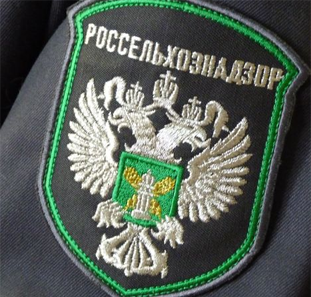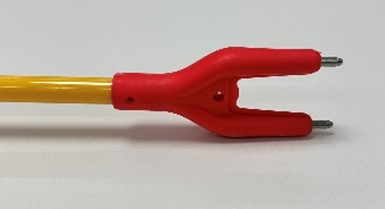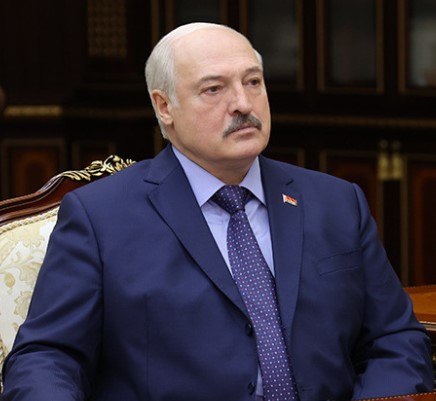They tried to smuggle 22 tons of fish and meat without veterinary certificates into the Amur Region

In the middle of the third decade of April in the Bureysky district of the Amur region, the regional Department of the ROSSELKHOZNADZOR suppressed attempts to transport products of animal origin: frozen fish and MEAT. The total volume was more than 22 tons without veterinary accompanying documents.
Pink salmon, herring and pork without certificates characterizing their territorial and species origin, as well as confirming the epizootic well-being of the place of release of these products, two citizens tried to deliver through the territory of the Amur Region from the Primorsky Territory to the Trans-Baikal Territory, and also to import into the Amur Region from the Khabarovsk Territory.
Carriers who violated the veterinary and sanitary rules were brought to administrative responsibility (part 2 of article 10.8 of the Code of Administrative Offenses of the Russian Federation) with the imposition of fines.
They also had interviews. Cargoes transported without certificates - fish and frozen meat with a total weight of over 22 tons - were detained at the inspection site until the circumstances were clarified.
After a few hours, the carriers electronically received the data of the veterinary and accompanying documents necessary for passing the control, which they had previously issued, but did not have with them during transportation, after their verification by the inspectors of the regulatory agency, proceeded along the routes to their destinations.
Since the beginning of the year, inspectors from the Rosselkhoznadzor Administration for the Amur Region have identified violations of veterinary legislation when transporting more than 30 batches of animal products (meat and meat products, frozen fish, raw MILK , fertilizer of animal origin) with a total weight of more than 250 tons. The perpetrators were brought to administrative responsibility with the imposition of fines, the press service of the department reports.
Inspection of goods aimed at preventing uncertified transportation, as well as protecting the population from diseases common to animals and humans and their spread in the Amur region, continues.
Information about detected violations is promptly sent to the territorial departments of the Rosselkhoznadzor, which supervise the subjects of the exit and arrival of goods.
Read together with it:
- Новое видео на нашем канале: Тысячи верблюдов под одним взглядом: как устроена смотровая площадка в конецентре Бауржана ОспановаРазговор с Бауржаном Кенесбековичем Оспановым о верблюдоводстве в Казахстане. Зачем казаху верблюд, как устроен конецентр и смотровая площадка где тысячи верблюдов проходят бонитировку. И снова, друзья мои, мы беседуем с известным казахстанским бизнесменом и меценатом Бауржаном Кенесбековичем Оспановым - человеком, который не просто развивает сельскохозяйственный бизнес, но делает это системно, с ...
- Proper insemination of cows: how genetic and physiological factors influence herd productivityGenetics plays a significant role in determining the reproductive fitness of bulls, and daughter pregnancy rates should be compared to accepted standards. If a farm's performance falls short of the baseline, using less-than-optimal bulls can still improve fertility. Cow physiology is also crucial for successful insemination. Feed quality, housing conditions, and veterinary care directly impact res...
- The quarantine for farm animals due to leukemia has been lifted in the village of Gusevo.As of October 21, 2025, the restrictions were lifted due to an improvement in the clinical situation on farms. Specialists conducted the necessary laboratory tests and treatment procedures, confirming the absence of infected animals. As a result, livestock owners can now freely sell MILK and MEAT , as well as transport animals outside their communities.......
- New support measure for the agricultural sector. The Ministry of Agriculture and Food explained the legislative changes.October 21, MINSK . Effective October 20, 2025, a new measure to support the agro-industrial complex in Belarus was introduced: the assignment of raw material zones to processing plants, according to the decree. The Ministry of Agriculture and Food explained the legislative changes, BELTA reports. According to the decree, regional executive committees are authorized to create raw material zones fr...
- The global price of meat has reached a historic high, rising sharply over the past year.The Food and Agriculture Organization of the United Nations (FAO) food price index , which measures monthly fluctuations in the global prices of a basket of five food commodities, has shown that MEAT prices have risen by almost 10% since the beginning of the year. In August, the average score for the meat category, which includes beef, pork, poultry, and lamb products, was nearly 128 points, a rec...
- Rosselkhoznadzor conducted six inspections of livestock farms using UAVs in the Rostov and Volgograd regions and Kalmykia.All inspections were conducted using unmanned aerial vehicles. During these activities, 12 violations of mandatory requirements by agricultural enterprises were identified. The main violations included the lack of fences on the premises, unorganized areas for disinfecting vehicles, the absence of sanitary checkpoints, unmarked animals, and improper storage of manure. Six warnings were issued to th...
- A new approach to monitoring: Rosselkhoznadzor uses drones to inspect livestock farms in Transbaikalia.During a series of on-site surveys conducted on October 8 and 15, 2025, in the Karymsky and Chita districts, serious violations of veterinary legislation were recorded. Among the issues identified were the unauthorized storage of manure, the lack of disinfectant barriers at entrances, and inadequate fencing of areas. Processing the collected data will enable the necessary measures to be taken in a...
- Azerbaijan entered the top three largest buyers of forest products at the Belarusian Commodity Exchange (BUCE).October 16, MINSK . Azerbaijan has become one of the top three largest buyers of forest products on the Belarusian Universal Commodity Exchange (BUCE), the BUCE press service told BELTA. Based on the results of the first nine months of 2025, Azerbaijani companies ranked second in terms of forest product purchases on the Belarusian Universal Commodity Exchange (BUCE). Residents of CHINA and Uzbekis...
- A Moscow region restaurant has been issued a warning for operating without registration in the Mercury system.Due to violations identified in accordance with the EAEU technical regulations and Russian legislation on veterinary and food safety, on October 14, individual entrepreneur A.I. Konkin was issued a warning regarding non-compliance with mandatory requirements. Since the beginning of 2025, ROSSELKHOZNADZOR has identified 2,......
- In the Nizhny Novgorod region, 34 declarations for dairy and meat products were cancelled due to violations.According to the agency's press service, 27 declarations concerned dairy products, and 7 concerned MEAT products. The main reason for the recalls was product non-compliance with mandatory requirements established by the technical regulations of the Customs Union, which was recorded in 67% of cases. In 33% of cases, declarations were cancelled due to inaccurate declarations of dairy products. it wa...





























































